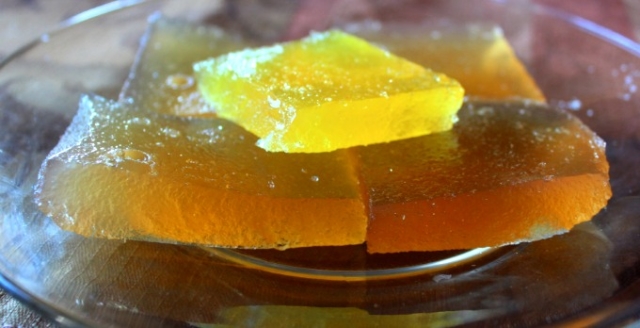Get Ready for the Summer Sun: Eat Some Collagen!

What do gelatin and bone broth have to do with your fun in the sun? To understand the connection, it's important to consider the layers of the skin and the interaction of these with the UV rays of the sun.
Your skin is composed of the epidermis, the outermost layer of the skin; the dermis, directly beneath; and the hypodermis, located beneath the outer and middle layers.
When UV light collides with the epidermis, most of the UV (95 percent or more) is blocked. The remaining 5 percent (or less) is absorbed by the collagen which is located in the second layer, the dermis.
What exactly is collagen? Collagen is the most abundant protein found in the body. Derived from the Greek word kólla, or glue, collagen keeps our bodies from falling apart—literally. Collagen makes up 15 percent of our total dry weight.
The problem is that collagen production begins to decline in our mid-20s, and by the time we hit 40, our collagen levels have fallen by up to 30 percent.
Summer Sun Protection
 Summertime brings increased exposure to the sun. What precautions should we take? Can we avoid the use of chemical-laden creams and lotions? Are there any potential health benefits in sun exposure, or should we do our best to avoid it?
Summertime brings increased exposure to the sun. What precautions should we take? Can we avoid the use of chemical-laden creams and lotions? Are there any potential health benefits in sun exposure, or should we do our best to avoid it?
Humans get most of their vitamin D directly from sunlight. For those who live in darker parts of the world such as Norway and Alaska, it's necessary to get vitamin D indirectly by consuming oils from fish and other animals that have been exposed to sunlight. For this reason, we need not avoid the sun—we simply must be wise about it.
Maintaining a healthy dietary balance of omega-6 and omega-3 oils is one of the first natural lines of defense against sunburn. Avoiding sugar and pro-inflammatory industrialized oils can also help. The less inflammation, the stronger the skin's natural protective abilities.
Let's take a look at other safe, natural ways to care for your skin this summer. Armed with a little knowledge and a bit of creativity, you'll be ready to enjoy plenty of fun in the sun!
Summer Bug Protection
 Summer is breeding time for bugs, which brings increased exposure to mosquitoes, ticks, and various stinging insects. How do we avoid the use of harsh chemicals and still protect our skin and our health?
Summer is breeding time for bugs, which brings increased exposure to mosquitoes, ticks, and various stinging insects. How do we avoid the use of harsh chemicals and still protect our skin and our health?
With proper precaution and preparation, there's no reason you can't enjoy the great outdoors this summer!
Practical Tips
Before we look at applying and spraying, let's consider a few helpful tips for dealing with bugs:
- Do not wear fragrances. Bugs are already drawn to hormones, pheromones, and chemicals released in our sweat. No need to add any extra scents to attract them!
- Eat garlic and drink 1-2 tbsp. apple cider vinegar, as insects are repelled by these.
- Wear plenty of clothing. Keep well covered. Pull socks over pant cuffs. Avoid bright clothing.
- Shower quickly after exposure to bugs, especially ticks.
- When camping, throw sage, rosemary, and/or lemon balm leaves on the fire to reduce bugs.

